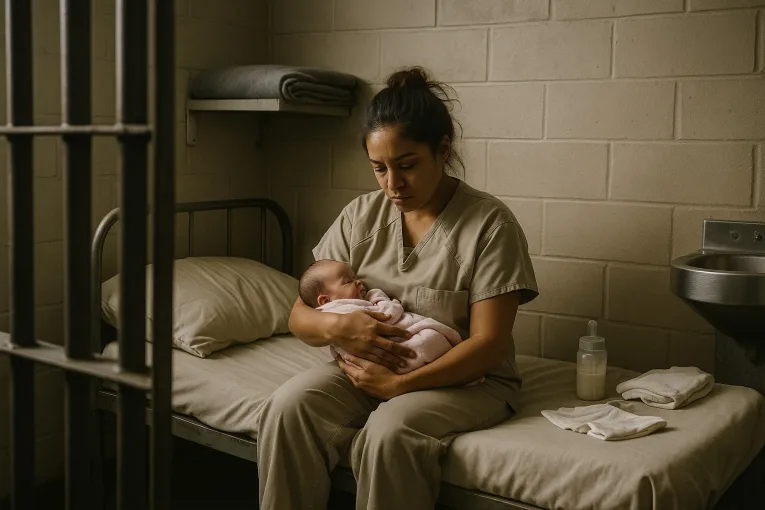
The Prison Policy Initiative (PPI) has published an analysis of a recent Bureau of Justice Statistics (BJS) report that sheds new light on maternal health care in U.S. prisons. The report, entitled Maternal Healthcare and Pregnancy Prevalence and Outcomes in Prisons, 2023, includes data collected in 2024 as part of a supplement to the National Prisoner Statistics survey.
While PPI acknowledges that the report marks a step forward in understanding the overlooked experience of pregnancy during incarceration, the findings raise more questions than answers.
According to PPI, the number of women in U.S. prisons has been rising rapidly, yet research has failed to keep pace—particularly when it comes to the health impacts of incarceration, including pregnancy. The data, compiled by researchers at Johns Hopkins University’s Pregnancy in Prisons Statistics (PIPS) project and the BJS, reveal significant gaps and inconsistencies in previous reporting. These include unexplained disparities in pregnancy prevalence, missing birth outcome data, and limited information on services for pregnant people behind bars.
One area of concern is the lack of detail around prison nursery programs. While the report confirms their existence, it omits critical information on how these programs are implemented. PPI also points to inconsistencies between this report and earlier studies regarding how many people report being pregnant upon entering prison, as well as potential misrepresentations in racial data.
Perhaps most troubling, PPI notes, is the omission of key health outcomes such as preterm births and maternal mortality. Despite PPI’s recommendations, the BJS did not include these indicators in its data collection. “This information can inform the interventions and medical treatments required to promote health,” the organization writes.
Even though the U.S. is considered a developed nation, it continues to face one of the highest rates of pregnancy-related complications—particularly among low-income women and women of color. Within the prison system, these risks are magnified. Incarcerated women often face a higher prevalence of chronic health conditions, substance use disorders, and mental health challenges, all of which can compound the risks of pregnancy.
According to PPI, while most prison systems claim to train staff in caring for pregnant individuals, the report lacks information on whether or how that training is actually used. Six states—Alaska, Hawaii, Iowa, Maine, Nevada, and Washington—report that they do not provide any pregnancy-related staff training at all.
PPI stresses the importance of basic prenatal and postnatal care, noting that access to resources like postpartum diets, extra pillows, breast pumps, and mental health support can make a significant difference in maternal and infant health. Yet the report reveals limited or inconsistent availability of these essentials across the prison system.
One of the most critical findings PPI highlights is that only 11 states, along with the federal prison system, provide nursery programs that allow newborns to remain with their incarcerated parents. Even among those, restrictive eligibility criteria often exclude many women from participation.
Despite these shortcomings, PPI acknowledges that the BJS report represents an important first step in addressing the lack of research around pregnancy in prison settings. However, the report also leaves crucial questions unanswered: Why do its findings differ from previous studies? How many incarcerated pregnant people actually receive healthcare services? And what are the real outcomes of births behind bars?
PPI concludes that more detailed, consistent, and transparent data collection is essential to improve maternal care in prisons and ensure the health and dignity of incarcerated pregnant people.
Categories:
Breaking News Everyday Injustice
Tags:
Bureau of Justice Statistics Mass Incarceration Maternal healthcare in U.S. prisons PPI US Prisons
This post was originally published on this site be sure to check out more of their content.








